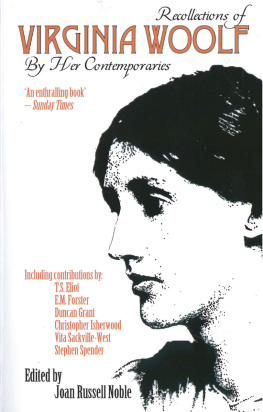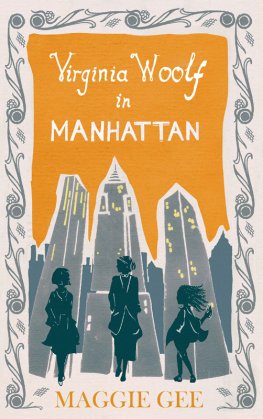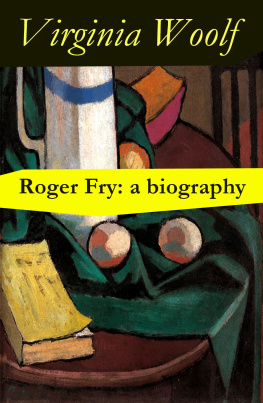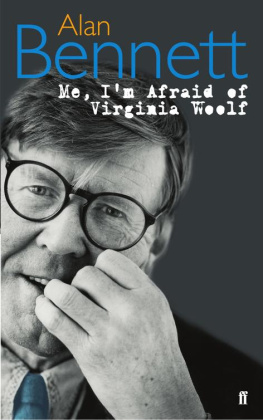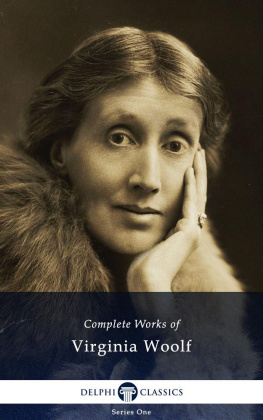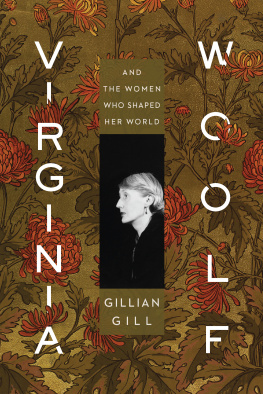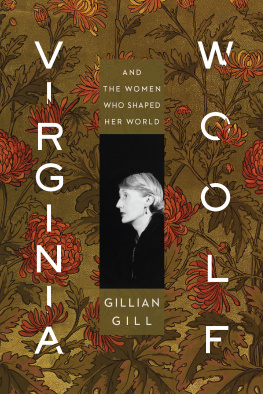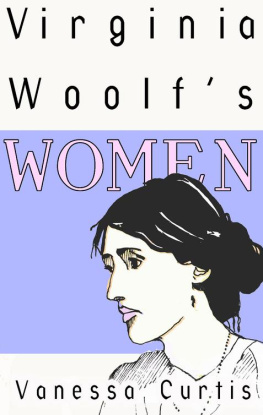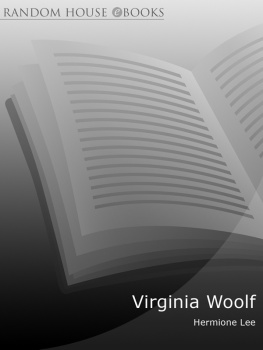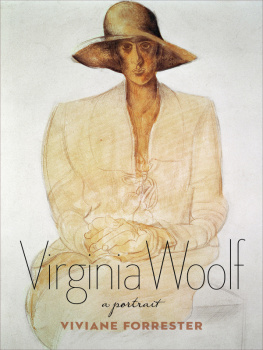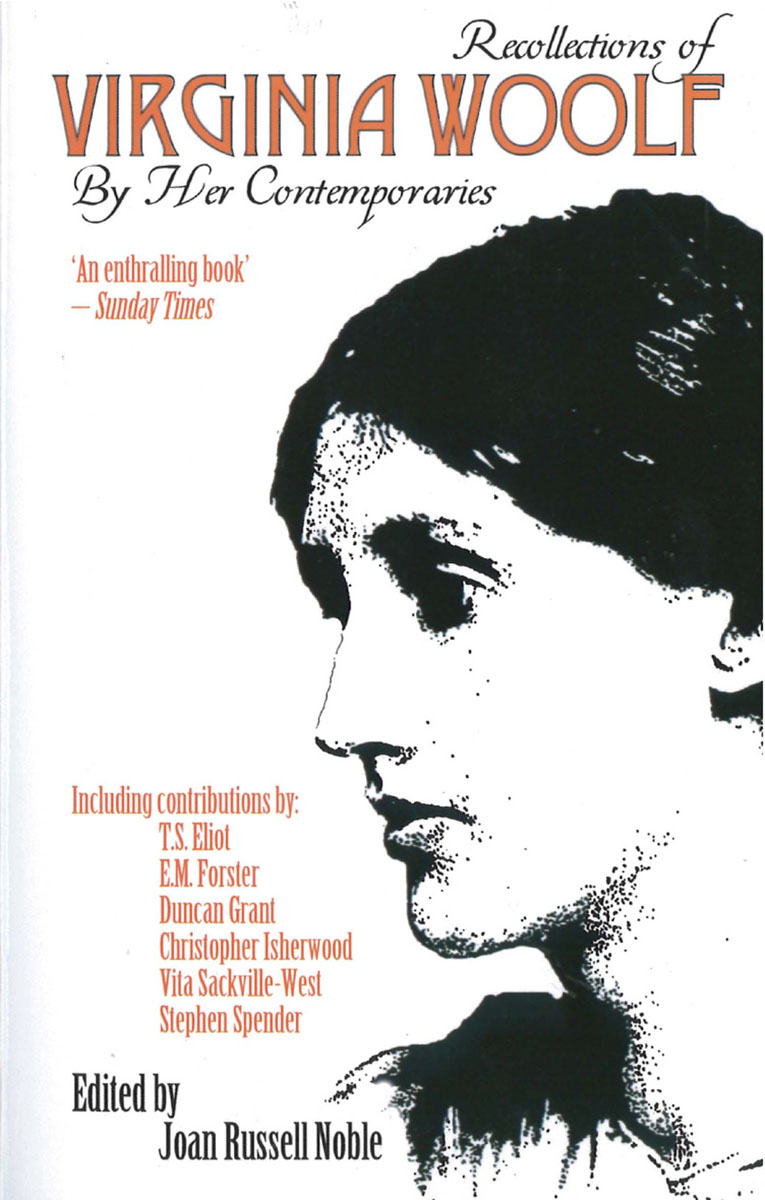
Praise for Recollections of Virginia Woolf
An enthralling book To read this book is to get to know a wonderful human being who was also a most gifted writer.
- Cyril Connolly, Sunday Times
The tantalizingly brief, strongly personal recollections of a fascinating bunch of characters tell us far more than any other biography.- Daily Mail
The contributors communicate the abundance of Virginia Woolfs affection, the special quality of her genius and her compelling, rare, elusive beauty. Times Literary Supplement
A joy to read. Cosmopolitan
RECOLLECTIONS OF
Virginia Woolf
VIRGINIA WOOLF is regarded as one of Englands greatest novelists, yet while her work has been endlessly studied she remains a somewhat elusive personality and the source of continuing myth. Some said that once her shyness was overcome she could be an amusing, even enchanting person but that there was an element of malice in her character that her limpid beauty concealed a demons tongue. Many including younger writers suffered the sharp stings of her wit, provoked for the most part by needless jealousy.
Yet in this acclaimed collection of recollections compiled by Joan Russell Noble lesser-known aspects of her nature are revealed including her rapport with children, her habit of plying people with questions, the answers to which might well appear in her novels, and the stress caused her by her creative writing. In addition, her death is movingly recounted by a member of her household. Many of the pieces had never been published before this book first appeared, while others were written especially for the collection.
From these reminiscences emerges a composite portrait alternately intimate, humorous and sad. Including contributions by such names as T.S. Eliot, E.M. Forster, Christopher Isherwood, Stephen Spender, Duncan Grant and Vita Sackville-West, the recollections sheds new insight into Woolfs complex nature.
Contents
Illustrations
For permission to reproduce the above illustrations the following are acknowledged with thanks: Lenare, London, for the frontispiece photograph of Virginia Woolf; Mrs Barbara Bagenal for the photograph of Asheham House; Mr Philip Allen (the present owner) for the photograph by Christopher Browne of Talland House; Mrs Barbara Bagenal and the Authors Literary Estate for extracts of a letter written by Virginia Woolf; and Mrs M. T. Parsons for the photographs taken at Monks House. The photograph of Godrevy Lighthouse is by Barnaby Browne.
Acknowledgements
I am grateful to the following for kindly granting me permission to quote from copyright sources: the Authors Literary Estate and the Hogarth Press for The Waves by Virginia Woolf; Professor Quentin Bell and Chatto & Windus Ltd for Old Friends by Clive Bell; the Cambridge University Press (copyright 1942) and the Society of Authors for E. M. Forsters Rede Lecture (abridged version); Mr David Garnett, Chatto & Windus Ltd and Harcourt, Brace Jovanovich, Inc. for The Flowers of the Forest; Mr Duncan Grant for an article previously published; Mr Christopher Isherwood for Virginia Woolf written at the time of her death, and for an introduction, Curtis Brown Ltd and Simon & Schuster, Inc. (copyright 1966); the Authors Literary Estate and Atlantic-Little, Brown & Company (In My Own Time, copyright 1955, 1960, 1966, 1969) for letters from Virginia Woolf to Mr John Lehmann which are mentioned in his article; and the Authors Literary Estate for various references to letters from Virginia Woolf.
I am particularly indebted to Miss Rosamond Lehmann for her adaptation of For Virginia Woolf (Penguin New Writing 7, 1941, edited by John Lehmann) and to Penguin Books Ltd.
I should also like to express my thanks to Mrs Valerie Eliot, widow and Literary Executor of T. S. Eliot, for an article written by him in 1941; A. D. Peters & Co. for Virginia Woolf by the late Dame Rose Macaulay; and to Mr Nigel Nicolson, Executor for his mother, the Hon. Vita Sackville-West, for permission to include recollections written by her in the form of a letter to a friend.
J.R.N.
Introduction
This book is not intended to provide an assessment of Virginia Woolfs work. A great deal has already been written about her novels and critical essays. It is concerned essentially with Virginia Woolf herself: about whom little has been said in print. It has been written by people who knew her either intimately as relations and friends, or who met her from time to time over a period of years and were acquaintances. Whatever the relationship, their knowledge of her is of course first hand; it extends over the greater part of her adult life, and is set down in these pages mostly in the form of reminiscences, impressions and anecdotes.
I had two reasons for wanting to put it together. The first, because I was afraid that recollections of her some of considerable importance might be irretrievably lost if they were not recorded in print; and the second, because as a student some years ago I had great difficulty in finding enough personal reference to her. If I had been able to find more in the libraries at that time it would have helped me towards understanding her unique sensibility as seen through the character of Mrs Dalloway, for instance but the most helpful information was scattered in a few volumes of autobiography, or in literary magazines that took time to locate. Since then, apart from Leonard Woolfs autobiography, very little has been written personally about her. On the other hand, information on Virginia Woolfs work has always been plentiful, and it increases yearly. When I last counted there were twenty-four books and 167 articles all containing explanations of her literary intentions. As a student I had been told by an eminent professor of modern English that she was one of Englands four greatest women novelists. Why then, I wondered, was she the least discussed of them all? Why had so much been written about her work and so little about Virginia Woolf herself?
When I started work on this book I had in mind three possible answers. The most obvious one was apathy. It seems that in England we do not want to know what circumstances surround our creative writers, we read what they have to say but our interest in them ends there. But judging by the number of books and articles written on Virginia Woolfs work, apathy was not an entirely valid answer. The second possibility was connected with her mental illnesses. These were a recurring factor in her life and could not be ignored when writing personally of her: perhaps her friends were diffident about mentioning them in print. This could have been the answer some years ago when mental illnesses were little understood and were referred to evasively as difficulties, but it has not held good for at least the past ten years. In that time they have become widely discussed and accepted with sympathy, and still very little has been said about Virginia Woolf. The third possibility was due, so it seemed, to a national characteristic: English politeness. We have considerable respect for individual privacy, which is in some ways commendable, but it inhibits us from gossiping about our writers in order to learn from them, as the Americans do, and the French and Italians.
This seemed to be the only answer, and in asking Virginia Woolfs friends for information about her I wondered how difficult it would be to overcome this form of English politeness. I therefore started to collect material for the book more in the nature of an experiment rather than as a definite undertaking. I soon found that many people were willing to talk about her and that the amount of information waiting to be recorded was almost overwhelming. However, when I asked for written impressions I was frequently told that it was extremely difficult to assess her personality with any certainty and to write about her would present a considerable problem. Through these replies, I also discovered that my conclusion as to why there was so little personal reference to her in the libraries was no nearer the truth than the other two possibilities. I had, in fact, underestimated one important factor: the complexity of Virginia Woolf herself. And here was my whole answer.
Next page
